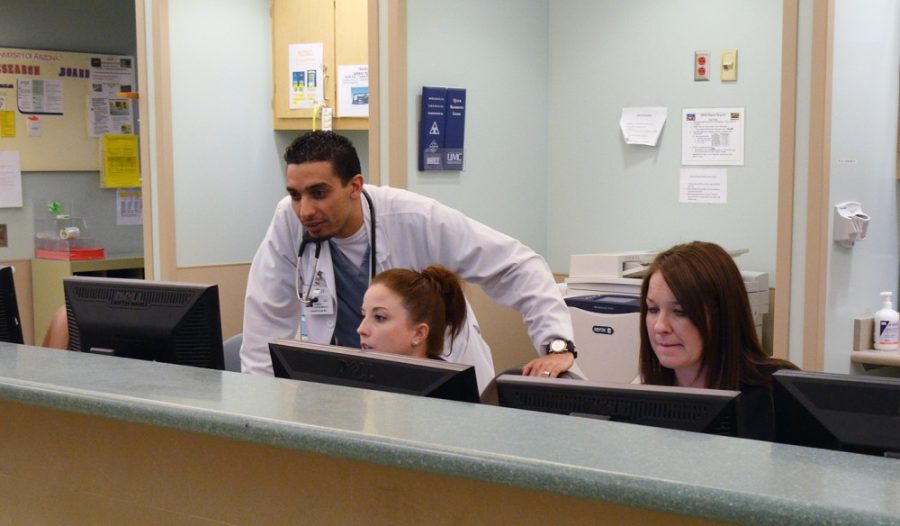The UA is seeking solutions to the problem of doctor shortages in the state of Arizona by expanding its graduate medical education programs.
According to a 2013 report from the Association of American Medical Colleges, the state of Arizona had 15,133 active physicians in 2012, or about 230.9 physicians per 100,000 residents, which is below the national average of 260.5 physicians per 100,000 residents.
The implementation of the Patient Protection and Affordable Care Act will make this problem more noticeable, said Conrad Clemens, associate dean for graduate medical education at the College of Medicine.
“At least for the short term, an influx of a lot more patients into our network is really going to strain our capacity,” Clemens said. “That’s why there is a lot of talk of needing more primary care doctors.”
Victoria Murrain, assistant dean for Graduate Medical Education at the College of Medicine, also said the Affordable Care Act presents challenges.
“The Affordable Care Act is bringing to the forefront the fact that we need more providers to provide the care that is actually needed,” Murrain said. “It is making us more aware of a problem that has been looming that definitely is going to get worse if we don’t fix it.”
Expansion of GME, the residency training doctors complete upon graduating from medical school in order to obtain a specialty, beyond the UA campus and throughout the state of Arizona is one way to mitigate the effects of the doctor shortage on multiple levels, Murrain added. It would provide more training places for medical students and help keep those trained physicians here in Arizona.
“People generally tend to stay in the area in which they have trained,” Murrain said, “so our goal is that we are able to keep them here in Tucson or Pima County, or at least the state.”
The GME program at the UA is already well established, Murrain said. Since 2004, the University of Arizona Medical Center — South Campus has created an additional 110 training positions, with more than half being primary care positions.
Clemens said the UA is currently looking to partner with communities in Arizona to bring GME programs to their local hospitals. He added the UA is interested in working with Phoenix in particular, given that the Phoenix area has half of the state’s population but doesn’t “have that significant of a GME footprint.”
The goal is to provide more primary care physicians to see the additional patients expected due to the Affordable Care Act, but other areas are also being looked at to help alleviate the problem of doctor shortages. Clemens said healthcare providers need to examine whether all the services that are being provided still need to be performed by doctors.
“[For example,] is there a place for nurse practitioners or physician assistants to do some of the things that doctors are now doing?” Clemens said.
The problem of doctor shortages in Arizona is also reverberating with those looking to go into the medical field, said Alexandria Chaput, a first-year master’s student studying cellular and molecular medicine who plans on going to medical school. Chaput said that with the direction healthcare is going, it’s likely doctors won’t see the kind of pay they are expecting when they finish medical school.
“I think that [the doctor shortage] has had a big impact on why people aren’t finishing medical school,” Chaput said. “They’re taking different routes such as nursing, PA [Physician Assistant] school, or a completely different direction.”
Murrain said, adding that the main issue right now is getting the state to increase funding for residency positions, rather than cutting it.
“My hope is that the state will somehow help us in funding more positions and creating a pipeline where we can entice our graduates to remain in the state,” Murrain said. “I think that [is] the next level of investment that needs to be made.”
GME programs are not cheap, Clemens added, as they can cost upwards of hundreds of thousands, if not millions of dollars just to get one started.
“There’s not a tremendous number of hospitals that are raising their hands saying ‘Yeah, I can’t wait to do this,’” Clemens said, “because it is a big undertaking.”
– Follow Ethan McSweeney @ethanmcsweeney









